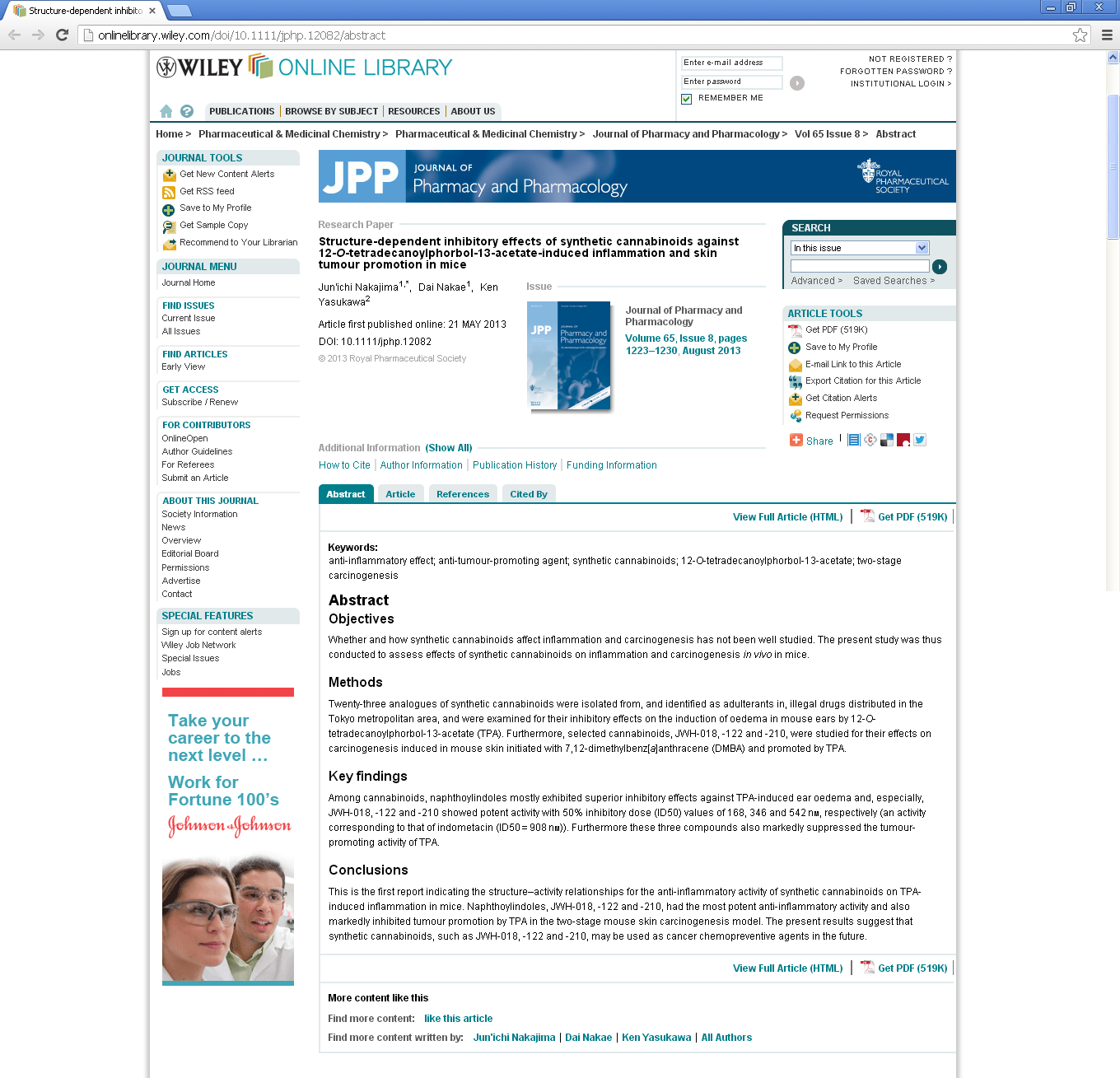In 2008, Professor Giovanni Appendino and Professor Simon Gibbons showed that marijuana chemicals could be just as effective against drug-resistant MRSA strains as powerful prescription antibiotics.

The Centers for Disease Control and Prevention (CDC) released an alarming report that warned of "potentially catastrophic consequences" from the spread of antibiotic-resistant bacteria.
For the first time, the U.S. public health agency detailed the damage done by the widespread use of antibiotics. According to the 114-page report, each year more than two million Americans are infected with bacteria resistant to modern day treatments and at least 23,000 die as a result.

The problem is - while antibiotics are effective against weaker strains of bacteria - they create an environment for genetic mutant "superbugs" to survive and flourish.
Unfortunately, that means the single biggest factor in the rise of drug resistant bacteria is the use of antibiotics themselves.
CDC Director Tom Frieden sent a clear warning to the public on the overprescribing and overuse of antibiotics during last news conference.
"Antibiotic resistance is rising for many different pathogens that are threats to health. If we don't act now, our medicine cabinet will be empty and we won't have the antibiotics we need to save lives."
But what are the alternatives?
As it turns out, researchers like Professor Simon Gibbons, who heads the Department of Pharmaceutical and Biological Chemistry at the University College London School of Pharmacy, have been investigating the natural antibiotic effects of a variety of plants.
And one of the most promising of these plants happens to be cannabis.
In 2008, Prof. Gibbons and Prof. Giovanni Appendino of Italy's Piemonte Orientale University published a study that demonstrated the ability of various chemicals extracted from marijuana (called cannabinoids) to fight methicillin-resistant staph bacteria - one of the most serious and life-threatening sources of bacterial infections in the U.S.
When the scientists tested chemicals from marijuana on six different strains of methicillin-resistant Staphylococcus aureus (MRSA) - including strains that are known to be resistant to traditional MRSA treatments - they found that they were just as effective at killing the bacteria as commonly prescribed antibiotics.
In fact, cannabinoids were even as effective as vancomycin - a powerful drug that is only used when other antibiotics fail.
Prof. Gibbons explained the remarkable findings of his 2008 study in an interview with MIT's Technology Review.
"The cannabinoids even showed exceptional activity against the MRSA strain that makes extra amounts of the proteins that give the bugs resistance against many antibiotics... Everything points towards these compounds having been evolved by the plants as antimicrobial defenses that specifically target bacterial cells."
Prof. Appendino added that the most promising cannabinoids in their study - cannabidiol (CBD) and cannabigerol (CBG) - also happen to be non-psychoactive.
"What this means is, we could use fiber hemp plants that have no use as recreational drugs to cheaply and easily produce potent antibiotics."
While the findings are still considered early stage - antibiotic cannabis extracts have yet to be tested on animals (let alone humans) - similar research dates back to the 1950's, when cannabis was studied as a treatment for diseases like tuberculosis.
However, little was known about marijuana's active chemicals at the time, which may have prevented research from advancing.
With our current understanding of cannabinoids, Prof. Appendino believes there is much promise for cannabis derivatives with bacteria-fighting abilities to be used in hospital settings - where most MRSA infections are acquired.
"The most practical application of cannabinoids would be as topical agents to treat ulcers and wounds in a hospital environment, decreasing the burden of antibiotics."
According to the CDC's latest report, there were about 80,500 MRSA infections in U.S. hospitals in 2011.
Source: TruthOnPot.com and CDC and MIT Technology Review